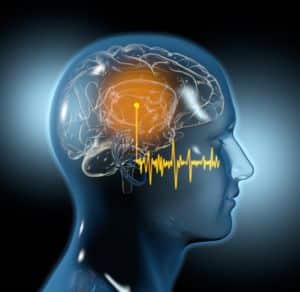COVID deafness
It is now over a year since the beginning of the pandemic and are we still discovering different effects that COVID has left us with. One previously unconsidered effect is that we may all have been left with a degree of hearing loss. Yes, really!
This is not an article to debate whether the virus itself or the various vaccines have had an effect on the physical ear (although there are certainly claims of increased tinnitus [noises or ringing in the ears or head] following vaccinations), but rather the deeper, more complex way that our brains may not process sound as well as a result.
To better comprehend this, we need to understand that we all ‘hear’ by using a blend of 2 methods:
Mechanical Hearing
This is the process of a sound vibration (or frequency) moving through the physical ear, [ear canal, ear drum, tiny bones (ossicles)
and then into the cochlea], then being transformed into an electronic impulse that is sent to the brain.
Cognitive Hearing
This is the process of the auditory cortex decoding the electronic impulses from the physical ear and translating those into what we recognise as ‘sounds’.
Effectively like a dot-to-dot picture. The mechanical ear draws dots in the correct place, the brain joins the dots to complete the picture.
The first point to be very clear about is that there is no evidence to suggest that any COVID variant or vaccine has a detrimental effect on our brains, BUT it is our reaction to it as a people, or rather the enforced isolation as a result of the pandemic, is what has and will continue to cause this phenomenon of hearing difficulties.
Whereas mechanical hearing is fairly straight-forward [a vibration is passed through a mechanism without any conscious intervention], Cognitive hearing is incredibly complex and subjective. Herein lies the problem.

We all remember distant times of restaurants and bars brimming with people laughing, chatting, shouting over the hum of music with glasses and crockery clanking (Fun, wasn’t it?!), our brains, however, don’t necessarily remember the coping mechanism to manage or filter that from a sound perspective.
We have all been forced into a much quieter world where competing noises have typically been at our own control. We have not had to manage these background noises because they have not been there, and our brains have simply adjusted to the status quo – The auditory processing has literally slowed down.
There is a recognised condition called APD (Auditory Processing Disorder), whereas the mechanical ear appears to react as expected to individual sounds but a patient’s ability to ‘hear’ or articulate what has been said, is significantly impaired when these sounds are intertwined, especially with background noise. What we are experiencing now is a form of this.
Now that we are beginning to enjoy ‘normal’ life again and the sounds that goes with it, even people with ‘normal hearing’ are reporting a significant inability to cope with background noise environments, because their brains have been conditioned to a new normal where this was not present.
“So how do we fix this?”
Good question! In order to fix a problem, we need to understand what is causing it. Firstly, we strongly advise everyone 50 years or older, that a hearing test should be done. We should do this routinely on a bi-annual basis. You may not have a measurable hearing loss at present, but it is important to get a base line and measure against that regularly, as we do with our eyes, teeth etc.
If a hearing loss is identified, it is critical to do something about it as soon as possible to give yourself the best opportunity to save as much of the mechanical and cognitive hearing ability as possible.
As for the APD or cognitive retraining, assuming there are no mechanical hearing problems, we expect that we will gradually overcome this as our brains recondition to the new, new normal. It is unlikely to be an immediate fix and there is no time frame that can be offered as our individual cognitive learning ability differs.
Sadly, as we get older our brains do not process as quickly so it will take longer to readjust. Another reason to make sure your hearing is as good as it can be in the first instance.
So, get your hearing checked and get out and enjoy busy environments, you owe it to your hearing!
Book a hearing test appointment now
Book an AppointmentImperial Hearing are offering free screening tests to anyone 50 years or older. They are a multi-award winning independent company with over 30 clinics throughout the midlands, south and south-west.
